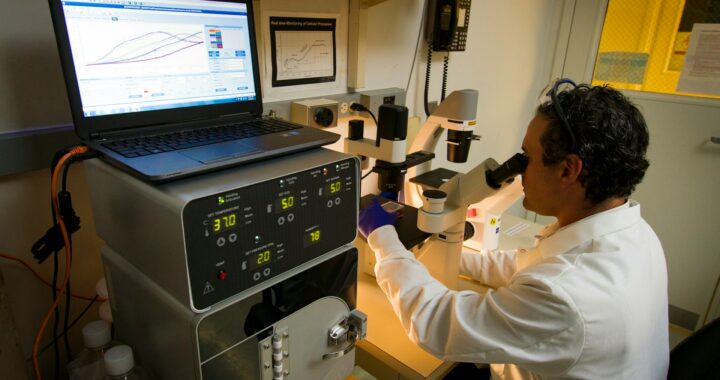
How Effective Is Aspirin In Reducing Fevers?
Fever can be uncomfortable and can interfere with daily activities. Many may wonder if taking an aspirin can reduce fever and help relieve the discomfort. This article will explore the effectiveness of aspirin in reducing fevers, and discuss the pros and cons of using it in this way.
What is Aspirin and How Does it Work?
Aspirin is a non-steroidal anti-inflammatory drug (NSAID) that works by inhibiting the production of enzymes responsible for inflammation and pain in the body. It is commonly used to relieve pain, reduce inflammation, and lower fever in patients.
Aspirin reduces fevers by preventing the production of prostaglandins, which are chemicals that cause inflammation and are responsible for raising body temperature. Studies have shown that aspirin is effective in reducing fevers, as it acts on the hypothalamus, which controls body temperature.
However, it is important to follow the recommended dosage of aspirin and not to use it for extended periods without consulting a doctor, as it may cause side effects such as stomach bleeding and kidney damage. In rare cases, aspirin use may also lead to Reye’s syndrome, a serious condition that affects the liver and brain in children and teenagers recovering from viral infections.
Studies on Aspirin’s Effectiveness in Reducing Fevers
Studies have shown that aspirin is an effective fever reducer due to its ability to block the production of prostaglandins, which play a role in causing fever and inflammation in the body.
Aspirin has been a popular remedy for fever reduction for decades, but the dosage and timing of its administration are essential for its effectiveness. Based on research, the recommended dose of aspirin for adults is between 325mg to 650mg per dose, up to every 4 hours, but not exceeding 4g in 24 hours.
It is crucial to check with your doctor before administering aspirin to children, as it has been linked to a potentially fatal condition known as Reye’s syndrome. Aspirin is not the only fever-reducing drug available, and a person’s health condition should be considered when choosing the best medication for fever reduction.
Potential Risks and Side Effects of Aspirin Use
Aspirin is a popular over-the-counter medication used to treat pain, inflammation, and fever. While it can be an effective treatment option, there are several potential risks and side effects associated with its use.
The following are some common risks and side effects of aspirin use:
| Risk | Side Effect |
| Stomach ulcers | Taking aspirin regularly can lead to the development of stomach ulcers or bleeding. |
| Reye’s syndrome | Aspirin should not be given to children or teenagers who have a fever, as it can increase the risk of developing a rare but potentially fatal condition called Reye’s syndrome. |
| Allergic reactions | Some people may develop an allergic reaction to aspirin, which can result in symptoms such as hives, swelling, and difficulty breathing. |
| Interaction with other medications | Aspirin can interact with other medications, such as blood thinners, and increase the risk of bleeding. It can also interfere with certain diagnostic tests and procedures. |
Aspirin is effective in reducing fevers, but it should be used with caution and only as directed to minimize the risk of side effects.
Does Aspirin Reduce Fevers
When fever strikes, Aspirin is a common go-to for reducing it. However, there are other alternatives that can be used to reduce fevers. In this article, we will look at the effectiveness of Aspirin for reducing fevers, as well as other alternatives that can be used to reduce fevers. Let’s get started!

Acetaminophen (Tylenol)
Acetaminophen, commonly known as Tylenol, is an effective alternative to aspirin for reducing fevers. While aspirin is known to have anti-inflammatory properties that can help reduce fevers, it is not always the best option for everyone.
| Here’s how acetaminophen can help: |
|
|
|
|
Ibuprofen (Advil, Motrin)
Ibuprofen (Advil, Motrin) is a nonsteroidal anti-inflammatory drug (NSAID) used to reduce fever, pain, and inflammation. While aspirin is also an NSAID that can reduce fever, it should not be used in children due to the risk of Reye’s syndrome.
Here are some effective alternatives to aspirin for reducing fevers:
| Medication | Description |
| Acetaminophen (Tylenol) | this pain reliever and fever reducer is safe for children and adults and is often recommended as a suitable alternative to aspirin. |
| Non-NSAID options | such as cool compresses, lukewarm baths, and staying hydrated can also help reduce fever without the use of medication. |
However, it is important to note that aspirin can still be effective in reducing fevers in adults when used according to doctor’s instructions and when no alternative is available.
Natural Remedies for Reducing Fevers
Aspirin is a common over-the-counter medication used to reduce fevers, but it is not suitable for everyone, and some people may prefer natural remedies. Here are some natural remedies for reducing fevers:
|
|
|
|
|
While Aspirin is effective in reducing fevers, it is not recommended for children, pregnant individuals, and those with bleeding disorders. Moreover, natural remedies can help alleviate fever symptoms and are generally safe and easy to administer.
Pro tip: Consult a medical professional if a fever persists for an extended period of time or accompanies other symptoms such as breathing difficulties, severe pain, or confusion.
When to See a Doctor for a Fever
Fevers can be the result of the body fighting off certain illnesses and might require medical attention in certain cases. While aspirin can reduce a fever, it is important to seek medical attention if your fever is persistent or if it reaches a dangerous level.
In this article, we’ll discuss when you should see a doctor for a fever and the effectiveness of aspirin in reducing fevers.
Recognizing Symptoms of a Serious Fever
Recognizing symptoms of a serious fever can help you decide when it’s time to see a doctor. Normal body temperature ranges between 97°F to 99°F, and anything above it indicates a fever; however, not every fever requires immediate medical attention.

If you or your loved ones are experiencing the following symptoms, it’s time to seek medical attention:
- High temperature above 103°F (39.4°C)
- Seizures
- Confusion or irritability
- Severe headache
- Difficulty breathing
- Abdominal pain
- Chest pain
While aspirin can reduce fever in many cases, it is not always effective or recommended. Children and teenagers should not take aspirin due to the risk of developing Reye’s syndrome – a rare but severe condition. Always read the label instructions and consult with a doctor before taking aspirin for a fever.
Pro tip: Stay hydrated, and avoid overdressing or overheating- both can make your fever worse.
Tips for Managing a Fever at Home
Managing a fever at home can be done by following these tips, but it’s important to know when to seek medical attention and the effectiveness of aspirin in reducing a fever.
Tips for Managing a Fever at Home:
| 1. Stay hydrated: | Drink plenty of fluids such as water, tea, and soup to prevent dehydration. |
| 2. Rest: | Get plenty of sleep and avoid strenuous activities that can raise body temperature. |
| 3. Cool compress: | Apply a cool cloth or ice pack to your forehead, armpits, and neck. |
| 4. Medication: | Over-the-counter (OTC) fever reducers such as acetaminophen or ibuprofen can help reduce fever and relieve discomfort. |
When to See a Doctor for a Fever:
If the fever persists for more than three days or is accompanied by severe symptoms such as difficulty breathing or chest pain, seek medical attention immediately.
How Effective is Aspirin in Reducing Fevers?
Aspirin is an effective fever-reducing medication. However, it’s not recommended for use in children due to the risk of Reye’s syndrome. Adults can still use aspirin to reduce fever, but should not exceed the recommended dosage unless directed by a healthcare professional. Pro Tip: Always consult a physician before taking any fever-reducing medication.
When to Seek Medical Attention for a Fever
If you have a fever, it is important to be aware of when to seek medical attention. Fevers are a common occurrence and can be a sign of various illnesses. However, a fever can sometimes indicate a more serious health condition that requires medical attention.
If your fever is accompanied by any of the following symptoms, it is best to seek medical attention:
|
|
|
|
|
|
|
|
Aspirin is effective in reducing fevers, as it has anti-inflammatory properties that help to reduce the inflammation that causes a fever. However, it is important to consult with a healthcare professional before taking aspirin to treat a fever, especially for children and individuals with pre-existing medical conditions. Additionally, aspirin should not be used in individuals with certain health conditions or during pregnancy.
Pro Tip: If you have a fever, drink plenty of fluids and get plenty of rest to help your body fight off the infection. If your fever persists, consult with a healthcare professional to determine the underlying cause and appropriate treatment.





